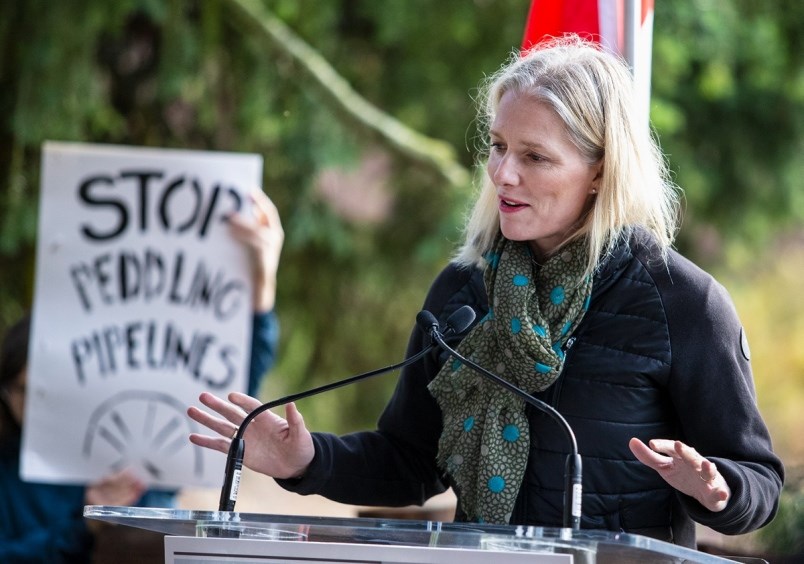A $14.65-million investment to add 7,900 hectares of grizzly-bear and wolverine habitat to a conservation area in southeastern B.C. was announced Wednesday in Saanich.
“This important expansion of Darkwoods will not only protect nature and the wildlife that depend on it, it will also increase conservation measures for the only inland temperate rainforest in the entire world,” said federal Environment Minister Catherine McKenna, with B.C. Environment Minister George Heyman at the Swan Lake Christmas Hill Nature Sanctuary.
The federal government has contributed $7 million from the Natural Areas Conservation Program, a public-private partnership to accelerate the pace of land conservation across southern Canada, and the B.C. government is kicking in $7.65 million to add 7,900 hectares to the Darkwoods Conservation Area.
The area provides essential habitat for almost 40 confirmed species at risk, including grizzly bear, wolverine, peregrine falcon, mountain caribou and whitebark pine, according to the federal government. The joint investment reflects the shared commitment to preserve lands essential to protect threatened species, said Heyman.
In 2008, the Nature Conservancy of Canada, a not-for-profit private land-conservation organization, said it completed the single largest private land acquisition for conservation in Canadian history with the Darkwoods Conservation Area — 56,000 hectares of remote valleys, mountains and lakes.
The portion announced Wednesday, the Next Creek watershed, is unprotected private forestry property in the heart of the Darkwoods.
Next Creek is viewed by the Nature Conservancy of Canada as the missing part of the puzzle and its highest priority for land acquisition in B.C. It expands the protected area by 14 per cent and bring species at risk habitat under conservation management.
Darkwoods and Next Creek, in the traditional territory of the Ktunaxa, Syilx and Sinixt peoples, feed 17 watersheds and more than 120 alpine lakes, and its unique forests harbour the highest tree diversity in B.C.
The acquisition allows for a substantial restoration plan for previously logged portions of the Next Creek property, according to the federal government. And the watershed will expand a network of conservation lands in the South Selkirk Mountains to more than 110,000 hectares.
The Canadian government has committed internationally to have 17 per cent of the country under some form of protection. B.C. has reached its contribution to that.
“Today’s investment shows we will continue to make meaningful contributions to conservation and biodiversity,” said Heyman.
John Lounds, president and CEO of Nature Conservancy of Canada, expressed gratitude Wednesday to the federal and provincial governments for their commitment to the expansion of Darkwoods.
“The investment kick-starts our work in the Next Creek watershed, and is a catalyst for conservation of global significance,” said Lounds.
The conservancy’s efforts to purchase and manage lands and the co-operation between the conservancy and grizzly-bear research scientists have allowed accurate conservation science to be applied where it will do the most benefit, said Michael Proctor, a Canadian researcher with the Trans-border Grizzly Bear Project.
The Darkwoods expansion is part of the conservancy’s initiative to raise and invest at least $25 million to expand its conservation work in the Canadian Rockies region.
More than one-quarter of the land that the Nature Conservancy of Canada protects is in British Columbia. The conservancy will talk about the Next Creek watershed and Darkwoods at 7 p.m. tonight in Victoria at NatureTalks: Grizzly Tales at St. Ann’s Academy. Admission is free, but you must register in advance online.
For more information, go to natureconservancy.ca/bcevents.
– Cindy E. Harnett, Times Colonist



